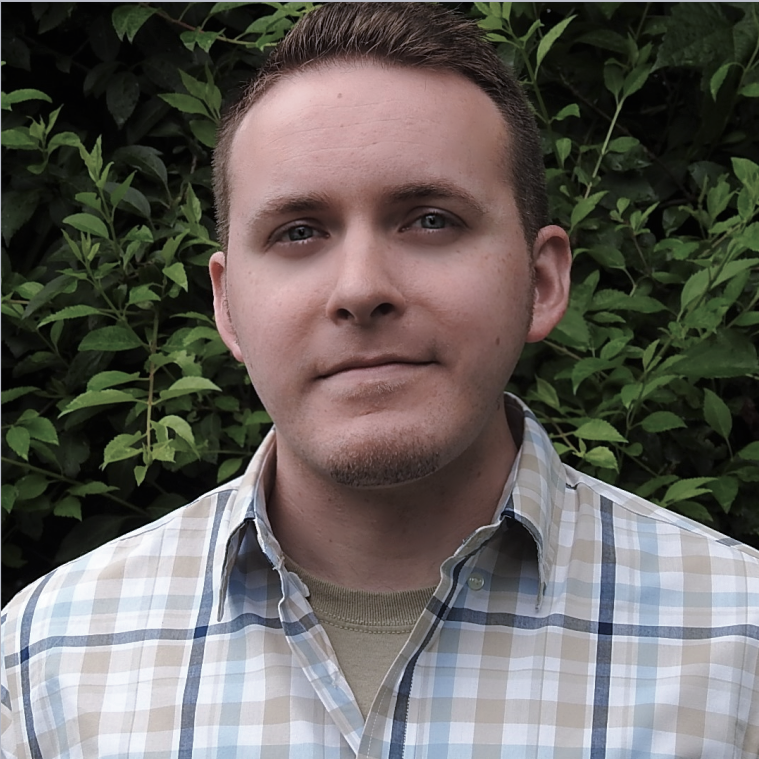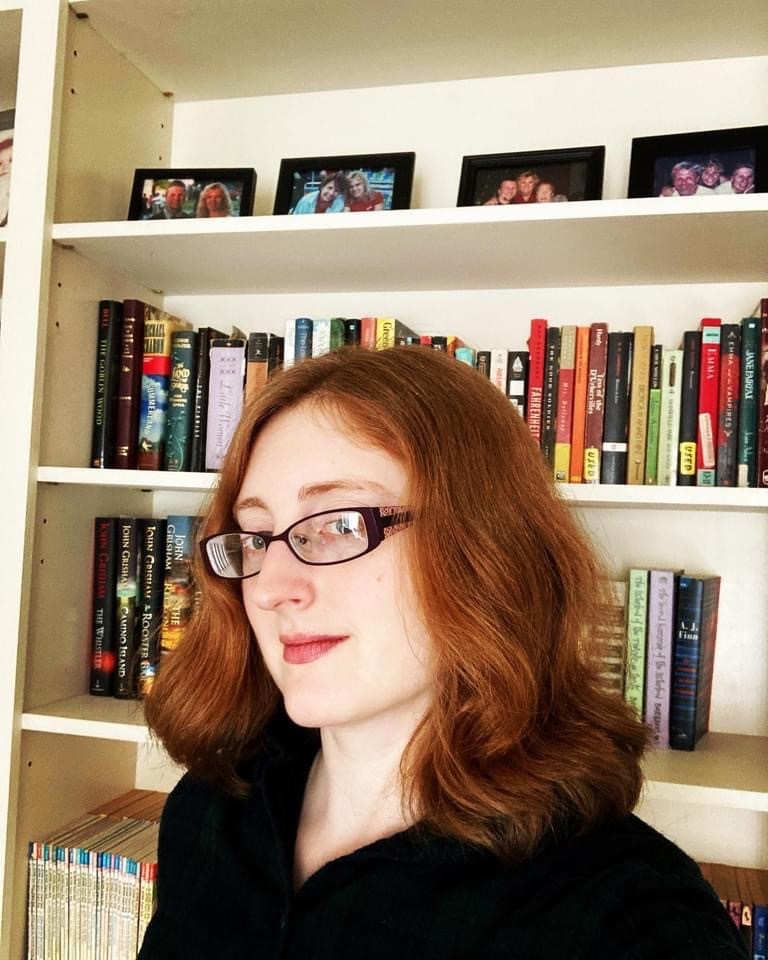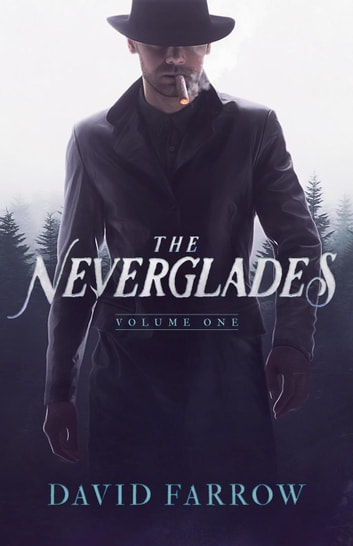A speculative fiction writer with a passion for liminal spaces and using fantastical elements to explore real-world issues, David Farrow shares the importance of “courting the muse,” giving back to the writing community, and adapting his Neverglades series into a video game!
DAVID FARROW – FICTION, JUNE 2022

DAVID FARROW is the author of the bestselling Neverglades books, a series of paranormal mystery stories which are currently being adapted as a video game. His work has appeared in Mythaxis Magazine and the LGBT+ horror anthology Black Rainbow. A new instructor with Boston’s creative writing nonprofit GrubStreet, David has years of experience working with aspiring writers as a consultant and teacher, with an emphasis on storytelling craft across genres. He is particularly interested in speculative fiction and works that explore narratives of queerness and identity.

Interview By
Julia Leef
You’re one of our more recent graduates from the program, completing your degree in June 2022. How has your writing routine fared post-Lesley? Did you face the same post-graduate slump that many of us do and if so, what helped you start writing again?
I wish I had a more inspiring answer to your question, but unfortunately the post-graduate slump is real, and it hit me hard. I’ve always been a bit of a scatterbrained writer – I tend to have multiple projects going at any given time, which I bounce between whenever inspiration strikes – but lately my writing has been more erratic than it’s ever been. I went weeks without writing a word, followed by all-nighters where I knocked out two short stories in one sitting each, followed by weeks of nothing again. I think the accountability Lesley offered was good for me, so I’ve been making efforts to find similar accountability in my writing groups, my interactions with readers of my online work, etc.
When I do feel inspired to write, it’s usually because I’ve just finished reading a great book. I know that might not be a particularly unique or insightful answer, but it’s truly what works for me. If a book really grips me, I’ll turn the last page and immediately get the itch to write something – maybe in a similar style, maybe focusing on similar subject matter, or maybe just because the story was that damn good and I want to write something that damn good too. These writing sessions are usually intense bursts for me, just nonstop typing without planning too far ahead, and I’m usually pretty pleased with the results. I wish I was one of those people who could write every day – it sounds wonderful – but hey, when the muse is being generous, I’ll take it.
I think new grads will be relieved to know they’re not alone when it comes to the post-graduate slump, and that you can still be a successful writer without writing every day. You’ve produced four works in The Neverglades series (three volumes and a collection of short stories) all of which I believe were published in 2021. Were these stories you had been working on for a while prior to publication? Or did large portions of them come about during some of the “intense bursts” you described?
The first Neverglades book actually came out in 2019, but I’d posted the stories online a year before that, and had been actively working on the series as far back as 2015. So it’s really been a long-term passion project of mine. I workshopped the stories in GrubStreet classes and critique sessions with my writing group before I felt they were ready to be shared with a wider audience. In a lot of ways, I got lucky; posting my stories for free on the internet was a big gamble, and it could have backfired. But The Neverglades ended up developing a passionate readership, which encouraged me to pursue self-publication (and that paid off in a big way).
Volume One of The Neverglades series
I never intended to write more than the first book, but the reader engagement got me excited about the series and inspired all sorts of new ideas – so here we are, one trilogy and a spin-off collection later. I think you can trace my growth as a writer from the start of the series to the end, especially the stuff I wrote during the MFA program, but there are also some early stories that I’m immensely proud of. Mostly the intense burst, written-in-one-sitting stories, which really did feel like capturing lightning in a bottle.
And now the series is being adapted into a video game by Half Byte Games LLC! How did that come about?
I was actually contacted by a Neverglades fan who works in game development. He was trying to find a big new project to work on for his fledgling game studio, and since he was already familiar with (and passionate about) the series, it sounded like a perfect opportunity. Travis, the lead developer, is giving me plenty of creative freedom too. I’m involved with conceptual development, game script writing, and even selecting our voice actors. We’re still in the very early stages, but I’ve gotten to play a tech demo, and wow – it’s really incredible to see the characters and worlds I’ve dreamed up come to life in that way.
Honestly, I’ve been lucky, since a lot of my success has come down to the right people noticing my work and taking interest in it. That’s not something you really have control over. It’s wonderful when it happens, but at the end of the day, the only part of the process you can fully control is the writing itself. No amount of publicity or exposure is a substitute for putting in the time, developing your craft, and getting your best work on the page. If you tell a story you’re passionate about, it’s likely that others will see that passion and respond positively to it.
Let’s talk a little bit about that passion. A lot of your work resides in the speculative fiction genre–what are some themes you particularly enjoy exploring in your writing, and what were some of your earliest inspirations?
Speculative fiction covers such a wide range of genres and themes, and I like to play in as many sandboxes as I can. I’m particularly fascinated with ghost stories – the things that haunt us, the pasts we can’t escape, the blanks we can’t fill in. I like stories that explore possible futures, especially with a focus on how technology might be used (or abused). And the vast majority of my writing tackles queer themes in some way. Speculative genres like sci-fi, fantasy, and horror have always used their fantastical elements to explore real world issues, and I try to contribute to those conversations when I can.
As far as my inspirations, the big one is Stephen King, honestly – the man lives and breathes storytelling, and his excellent character-building is something I strive to emulate in my own work. David Mitchell (the author of Cloud Atlas) is a genre-bending wizard who always pushes the limits of what a novel can do, and I wish I could write anything even half as brilliant as his stuff. I’ve also been particularly inspired lately by speculative writers like Carmen Maria Machado and Sam J. Miller. I love how their stories transcend genre, exploring darkness and joy and intimacy and queerness in really beautiful ways. My Lesley thesis, “Liminal Spaces,” owes a huge debt to them.
David promoting his Neverglades series at an author event.
As one of our more recent graduates, are there any pieces of advice you learned from your MFA mentors that have continued to be helpful to you outside of the program?
I like to think about the writing process as “courting the muse,” which is a concept that Laurie Foos phrased so perfectly. I’ve always struggled with self-editing as I write, and it’s easy for me to get discouraged when I have a particular vision in my head but the story doesn’t go according to plan. Laurie’s advice was to listen when the muse is singing and trust that it knows what it’s talking about. Now I try to seize inspiration when it’s generous enough to come to me, even if it’s not what I originally intended for the piece.
Writing doesn’t have to be a matter of brute-forcing your way to an idea, and perfectionism doesn’t have to be a roadblock. You can always let your muse guide you, even if it takes you down some whimsical side road you never anticipated, because the writing process can be fun (if we let it). It’s a journey of discovery. And even though you can’t always wait for the muse to sweep you away, you can encourage it by reading good books, exploring writing prompts, and being an active observer in the world. Stories can come from anywhere.
David Farrow (R) enjoying residency with his fellow cohort members, Deidra Dallas (L) and Catherine Hannum (C).
Before we wrap up, I want to make sure we touch on your work with GrubStreet, Boston’s creative writing nonprofit. What does your role with them entail and what drew you to teaching?
I’m a GrubStreet instructor, which means I teach a variety of creative writing classes with the organization – usually fiction-based, sometimes with genre focuses that interest me. I’ve been taking courses with Grub for years, and the environment has always been so welcoming and supportive. There’s a huge variety of classes – I’d be amazed if you couldn’t find at least one topic that interests you – and many are offered online as well, so it’s not limited to just Boston students. I’ve formed some incredible friendships thanks to Grub, and I always knew it was a place I wanted to teach at.
For me, teaching is a way of giving back to the community. I’ve learned so much about writing craft over the years, both at Lesley and beyond, and one of the reasons I’m still so enthusiastic about creative writing is because of all the teachers who encouraged that enthusiasm when I was growing up. In my own teaching, I try to live by their example. I want to be the kind of teacher who gets my students energized about their work. I want students to leave my classes excited to write – which may sound obvious, but I think finding joy in the process is more valuable for growing writers than just learning craft alone. I want them to feel confident in the unique, important voice they bring to the page. And who knows? Maybe one day they’ll pass along what they’ve learned to students of their own.
I think one of the best parts of being a growing writer is having that excitement to experiment with your writing before you become too intimidated by craft, so it’s nice to hear you teach craft and excitement alongside each other. Are there any upcoming projects you’re working on that people can look forward to?
My biggest project right now is a spin-off collection for my Neverglades series, which I’m calling The Neverglades: Multiverse Chronicles. It’s a lot of fun – I’m basically taking the characters and settings I’ve already established, throwing them into a chaotic multiversal blender, and seeing what comes out. It’s also my way of playing with genre a bit. The original Neverglades stories fall into the “paranormal mystery” category, but these multiverse stories go all over the genre map. Superheroes, political thrillers, westerns, cheeky self-parodies, you name it.
I’ve invited several guest authors on board too, which I’m very excited about. Some of them are my students, some are well-established Reddit writers, and some are brand new talents who’ve never published before. My goal is to release the book sometime this year (although we don’t have a definite release date lined up yet).
Listen to David read an excerpt from his short story, “Liminal Spaces” (full story here):




Comments are closed